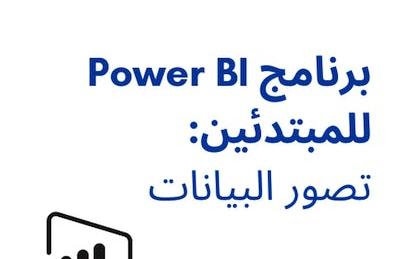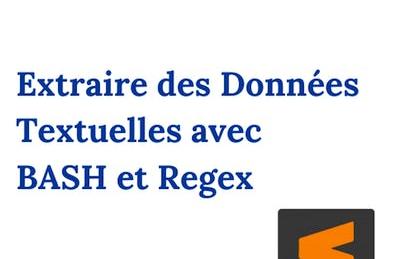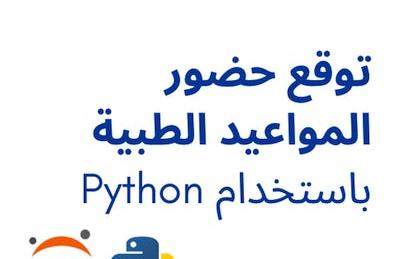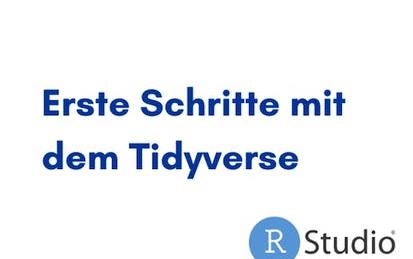

Our Courses

MongoDB Aggregation Framework
This course will teach you how to perform data analysis using MongoDB's powerful Aggregation Framework. You'll begin this course by building a foundation of essential aggregation knowledge. By understanding these features of the Aggregation Framework you will learn how to ask complex questions of your data.
-
Course by

-
 Self Paced
Self Paced
-
 19 hours
19 hours
-
 English
English

Foundations of Business Intelligence
This is the first of three courses in the Google Business Intelligence Certificate, which will help develop the skills needed to apply for entry-level roles as a business intelligence (BI) professional. People who work in BI help organizations access the right data, use data to help businesses grow and improve, and put insights into action. In this course, you’ll discover the role of BI professionals within an organization and explore BI tools you can use on the job.
-
Course by

-
 Self Paced
Self Paced
-
 25 hours
25 hours
-
 English
English

Social Network Analysis
The "Social Network Analysis" course offers a comprehensive exploration of the intricate relationships within social networks, emphasizing the theoretical and practical applications of network analysis.
-
Course by

-
 Self Paced
Self Paced
-
 10 hours
10 hours
-
 English
English

Performance Assessment in the Virtual Classroom
Welcome to Performance Assessment in the Virtual Classroom! This course will help you effectively assess student performance virtually, including compliance issues, feedback models, online grade book functions, and data analysis.
-
Course by

-
 Self Paced
Self Paced
-
 11 hours
11 hours
-
 English
English

برنامج Power BI للمبتدئين: تصور البيانات
سألت قبل كدة إزاي بيتم إنشاء الرسومات البيانية وعرضها في تقرير يُوضّح لنا أبرز المعلومات والإحصاءات والأرقام التي تخص موضوع مُعيّن؟ ده يتم عن طريق ال Data Analysis and Visualization باستخدام بعض الأدوات المُختصة في تحليل البيانات ومن أبرزها وأهمها حاليًا هو Power BI.
-
Course by

-
 Self Paced
Self Paced
-
 1 hour
1 hour
-
 Arabic
Arabic

تحليل البيانات ب R: التنبؤ بتحليل الانحدار
خلال هل مشروع راح تكون قادر تعمل predictive data analysis with regression يعني إستخدام البيانات للتحليل والتنبؤ من خلال طريقة الانحدار الخطّي ب-R Programming language.
-
Course by

-
 Self Paced
Self Paced
-
 2 hours
2 hours
-
 Arabic
Arabic

توقع حضور المواعيد الطبية باستخدام Python
في نهاية المشروع ده هتقدر تصمم model ذكاء صناعي عشان يتوقع المريض هيجي المعاد إلي كان محدد ولا لاباستخدام Python و Jupyter Notebook. خلال المشروع هنمشى مع بعض خطوة بخطوة عشان نقدر نحلل البيانات إلي هتكون معنا من website Kaggle.com الdata دي هتكون عن مرضى في البرازيل.و هنقدر نحدد ازاي الmachine learning engineer بيختار الmachine learning model بتاعو. و ازاي إقدر إستعمل ال-machine learning model بتاعي ده عشان اتوقع هل المريض ده هيجي ولا لا. المشروع ده هيفيد الناس المهتمة بمجال الdata science.
-
Course by

-
 Self Paced
Self Paced
-
 2 hours
2 hours
-
 Arabic
Arabic

Serverless Data Analysis with Google BigQuery and Cloud Dataflow em Português Brasileiro
Este curso rápido sob demanda tem uma semana de duração e é baseado no Google Cloud Platform Big Data and Machine Learning Fundamentals.
-
Course by

-
 Self Paced
Self Paced
-
 Portuguese
Portuguese

Inferenzstatistik
This course covers commonly used statistical inference methods for numerical and categorical data. You will learn how to set up and perform hypothesis tests, interpret p-values, and report the results of your analysis in a way that is interpretable for clients or the public. Using numerous data examples, you will learn to report estimates of quantities in a way that expresses the uncertainty of the quantity of interest. You will be guided through installing and using R and RStudio (free statistical software), and will use this software for lab exercises and a final project.
-
Course by

-
 Self Paced
Self Paced
-
 17 hours
17 hours
-
 German
German

Erste Schritte mit dem tidyverse
In diesem angeleiteten Projekt wirst du die berühmte tidyverse-Paketfamilie kennen lernen! Das tidyverse ist eine Sammlung von R-Paketen für Data Analysis und Data Science, die die gleiche Philosophie und die gleichen Regeln teilen und perfekt ineinander greifen.
-
Course by

-
 Self Paced
Self Paced
-
 3 hours
3 hours
-
 German
German

Gestión del análisis de datos
This one-week course describes the process of analyzing data and how to manage that process. We describe the iterative nature of data analysis and the role of stating a sharp question, exploratory data analysis, inference, formal statistical modeling, interpretation, and communication. In addition, we will describe how to direct analytic activities within a team and to drive the data analysis process towards coherent and useful results. This is a focused course designed to rapidly get you up to speed on the process of data analysis and how it can be managed.
-
Course by

-
 Self Paced
Self Paced
-
 Spanish
Spanish

Basic Statistics in Python (Correlations and T-tests)
By the end of this project, you will learn how to use Python for basic statistics (including t-tests and correlations). We will learn all the important steps of analysis, including loading, sorting and cleaning data. In this course, we will use exploratory data analysis to understand our data and plot boxplots to visualize the data. Boxplots also allow us to investigate any outliers in our datasets. We will then learn how to examine relationships between the different data using correlations and scatter plots. Finally, we will compare data using t-tests.
-
Course by

-
 Self Paced
Self Paced
-
 3 hours
3 hours
-
 English
English

Basic Statistics in Python (ANOVA)
In this 1-hour long project-based course, you will learn how to set up a Google Colab notebook, source data from the internet, load data into Python, merge two datasets, clean data, perform exploratory data analysis, carry out ANOVA and create boxplots.
-
Course by

-
 Self Paced
Self Paced
-
 4 hours
4 hours
-
 English
English

Python NLTK for Beginners: Customer Satisfaction Analysis
In this 2-hour course, we'll learn to analyze customer reviews for an online women's clothing shop. Our task is determining which clothing category (Tops, Bottoms, Jackets, Dresses, or Intimate) has higher customer satisfaction. The data consists of text reviews, and we'll use Python with pandas for data manipulation and the NLTK module for text preprocessing and sentiment analysis. Prior knowledge of Python and pandas is required. By the end of the course, learners will gain practical experience in text data analysis and customer sentiment evaluation.
-
Course by

-
 Self Paced
Self Paced
-
 3 hours
3 hours
-
 English
English

Data Analysis with OpenAI API: Save time with GenAI
In this 2-hour project-based course, you will embark on an exciting journey as a mid-level data analyst at TechTrends, a thriving e-commerce company specializing in electronic gadgets and accessories. Your mission is to leverage the power of cutting-edge AI technology, specifically the OpenAI API's GPT-4, to extract invaluable insights from the treasure trove of sales data at TechTrends. As the driving force behind data-driven decisions that transcend traditional boundaries, you will delve into the world of data analysis and insight extraction.
-
Course by

-
 Self Paced
Self Paced
-
 2 hours
2 hours
-
 English
English

Python Data Structures
This course will introduce the core data structures of the Python programming language. We will move past the basics of procedural programming and explore how we can use the Python built-in data structures such as lists, dictionaries, and tuples to perform increasingly complex data analysis. This course will cover Chapters 6-10 of the textbook “Python for Everybody”. This course covers Python 3.
-
Course by

-
 Self Paced
Self Paced
-
 3 hours
3 hours
-
 English
English

Reproducible Research
This course focuses on the concepts and tools behind reporting modern data analyses in a reproducible manner. Reproducible research is the idea that data analyses, and more generally, scientific claims, are published with their data and software code so that others may verify the findings and build upon them. The need for reproducibility is increasing dramatically as data analyses become more complex, involving larger datasets and more sophisticated computations.
-
Course by

-
 Self Paced
Self Paced
-
 8 hours
8 hours
-
 English
English
Data Analysis and Reporting in SAS Visual Analytics
In this course, you learn how to use SAS Visual Analytics on SAS Viya to modify data for analysis, perform data discovery and analysis, and create interactive reports.
-
Course by

-
 Self Paced
Self Paced
-
 9 hours
9 hours
-
 English
English

Distributed Computing with Spark SQL
This course is all about big data. It’s for students with SQL experience that want to take the next step on their data journey by learning distributed computing using Apache Spark. Students will gain a thorough understanding of this open-source standard for working with large datasets. Students will gain an understanding of the fundamentals of data analysis using SQL on Spark, setting the foundation for how to combine data with advanced analytics at scale and in production environments.
-
Course by

-
 14 hours
14 hours
-
 English
English

Share Data Through the Art of Visualization
This is the sixth course in the Google Data Analytics Certificate. You’ll learn how to visualize and present your data findings as you complete the data analysis process. This course will show you how data visualizations, such as visual dashboards, can help bring your data to life. You’ll also explore Tableau, a data visualization platform that will help you create effective visualizations for your presentations.
-
Course by

-
 Self Paced
Self Paced
-
 24 hours
24 hours
-
 English
English

Bayesian Statistics: From Concept to Data Analysis
This course introduces the Bayesian approach to statistics, starting with the concept of probability and moving to the analysis of data. We will learn about the philosophy of the Bayesian approach as well as how to implement it for common types of data. We will compare the Bayesian approach to the more commonly-taught Frequentist approach, and see some of the benefits of the Bayesian approach. In particular, the Bayesian approach allows for better accounting of uncertainty, results that have more intuitive and interpretable meaning, and more explicit statements of assumptions.
-
Course by

-
 Self Paced
Self Paced
-
 12 hours
12 hours
-
 English
English

Predictive Modeling and Machine Learning with MATLAB
In this course, you will build on the skills learned in Exploratory Data Analysis with MATLAB and Data Processing and Feature Engineering with MATLAB to increase your ability to harness the power of MATLAB to analyze data relevant to the work you do. These skills are valuable for those who have domain knowledge and some exposure to computational tools, but no programming background.
-
Course by

-
 Self Paced
Self Paced
-
 22 hours
22 hours
-
 English
English

Excel Power Tools for Data Analysis
Welcome to Excel Power Tools for Data Analysis. In this four-week course, we introduce Power Query, Power Pivot and Power BI, three power tools for transforming, analysing and presenting data. Excel's ease and flexibility have long made it a tool of choice for doing data analysis, but it does have some inherent limitations: for one, truly "big" data simply does not fit in a spreadsheet and for another, the process of importing and cleaning data can be a repetitive, time-consuming and error-prone.
-
Course by

-
 15 hours
15 hours
-
 English
English

Excel Basics for Data Analysis
Spreadsheet tools like Excel are an essential tool for working with data - whether for data analytics, business, marketing, or research. This course is designed to give you a basic working knowledge of Excel and how to use it for analyzing data. This course is suitable for those who are interested in pursuing a career in data analysis or data science, as well as anyone looking to use Excel for data analysis in their own domain.
-
Course by

-
 Self Paced
Self Paced
-
 12 hours
12 hours
-
 English
English

Bayesian Statistics: Techniques and Models
This is the second of a two-course sequence introducing the fundamentals of Bayesian statistics. It builds on the course Bayesian Statistics: From Concept to Data Analysis, which introduces Bayesian methods through use of simple conjugate models. Real-world data often require more sophisticated models to reach realistic conclusions. This course aims to expand our “Bayesian toolbox” with more general models, and computational techniques to fit them.
-
Course by

-
 Self Paced
Self Paced
-
 30 hours
30 hours
-
 English
English



